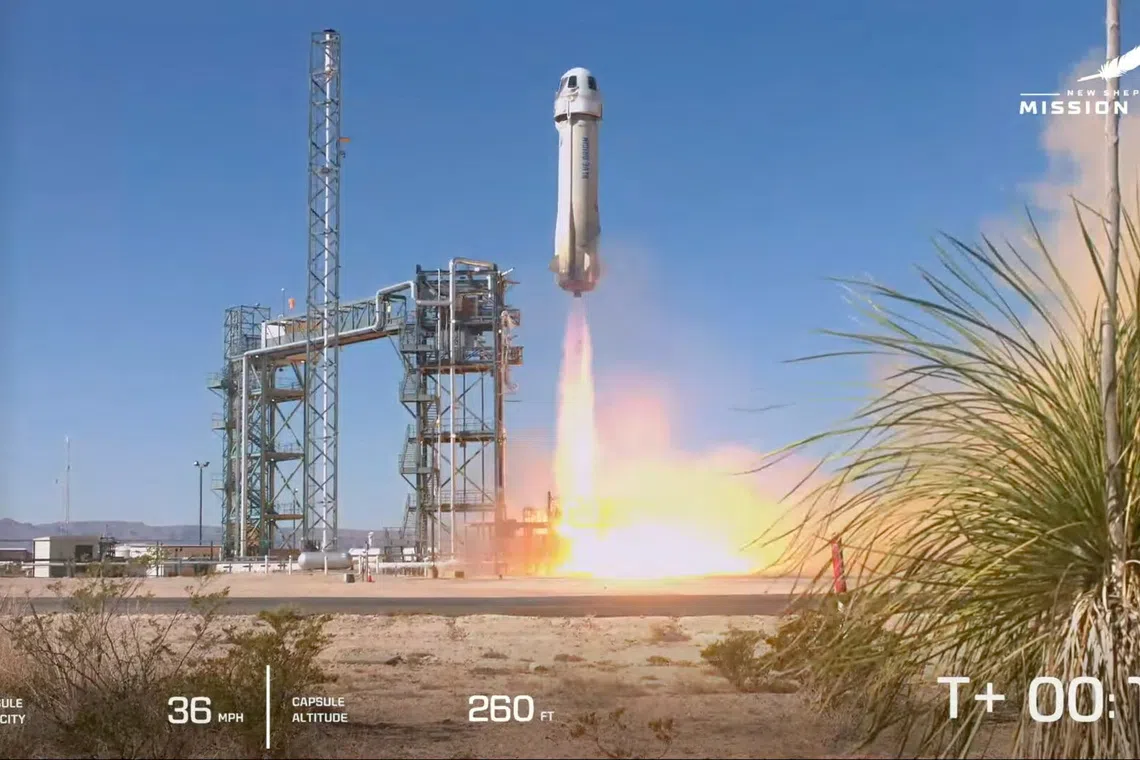Jeff Bezos’ Blue Origin delays rocket for its first Nasa mission
Sign up now: Get ST's newsletters delivered to your inbox

The rocket’s launch time was pushed back several times before Blue Origin ultimately called it off.
PHOTO: REUTERS
SEATTLE – Blue Origin postponed a planned second flight of its flagship New Glenn rocket on Nov 9, delaying a mission that would serve as a crucial test for the space company backed by Mr Jeff Bezos in its quest to challenge SpaceX.
Scheduled to launch from Cape Canaveral, Florida, the rocket’s launch time was pushed back several times before Blue Origin ultimately called it off due to weather conditions and unspecified ground equipment issues.
It aims to send two Rocket Lab-made spacecraft on a trajectory towards Mars for New Glenn’s first Nasa mission.
It is unclear when the company will reattempt a long-awaited second flight after the rocket’s January debut.
As a result of the US government shutdown, the Federal Aviation Administration (FAA) last week issued an emergency order restricting both airline flights and commercial space launches. The directive bans commercial launches and re-entries during a time window in which New Glenn’s back-up launch was originally planned.
Ms Laura Maginnis, New Glenn’s vice-president of mission management, said at a press briefing on Nov 8 that Blue Origin is working closely with the FAA and Nasa “on opportunities for exceptions to the policy based on how our mission goes”.
Key to Blue Origin’s ambitious plans for space exploration, New Glenn is years behind schedule and has faced a longer-than-expected waiting period leading up to its next flight.
Chief executive officer Dave Limp said in January that Blue Origin had aimed for a second launch by late spring and for a total of six to eight flights in 2025.
A successful launch would put Blue Origin back on track to challenge the grip that Mr Elon Musk’s SpaceX has on the rocket business. SpaceX’s Falcon 9 rocket is the most prolific launch vehicle in the world.
After the launch, Blue Origin planned to land the rocket’s booster on a barge in the Atlantic Ocean.
New Glenn, like SpaceX’s Falcon series of rockets, is designed to be partially re-usable, allowing boosters to be repurposed for multiple launches.
When New Glenn had its debut flight in January, the rocket reached orbit but missed its intended booster landing.
Blue Origin sends tourists to the edge of space and back on smaller rockets, but New Glenn gives the company the capability to deliver spacecraft and satellites into orbit and beyond. That makes it key to clearing Blue Origin’s US$10 billion (S$13 million) backlog of customer contracts.
One of those is with Nasa to launch astronauts to the moon for the agency’s Artemis V mission.
New Glenn is part of a class of next-generation rockets, including United Launch Alliance’s Vulcan and the European Space Agency’s Ariane 6, that have emerged as potential players in the launch industry but have faced difficulties increasing their frequency of flights to orbital space. BLOOMBERG


